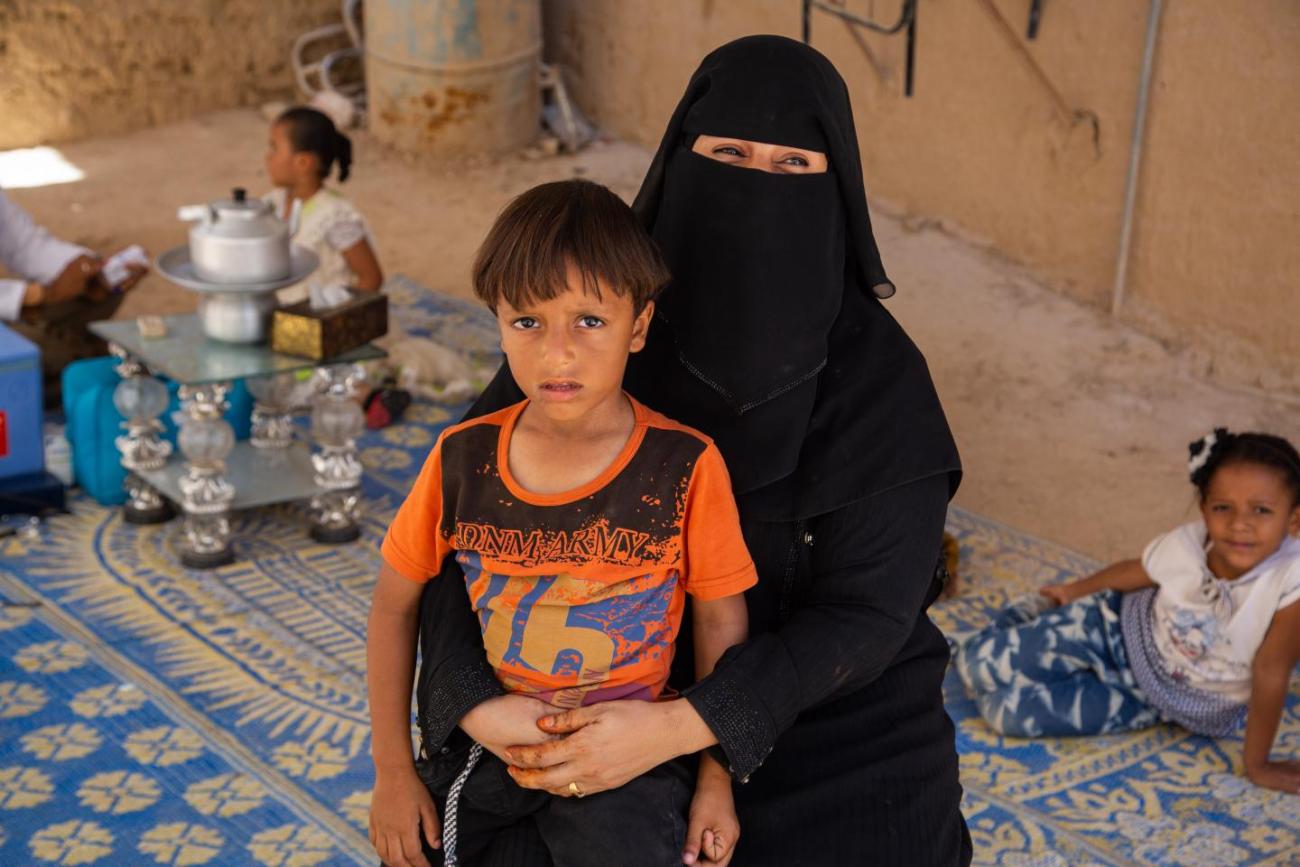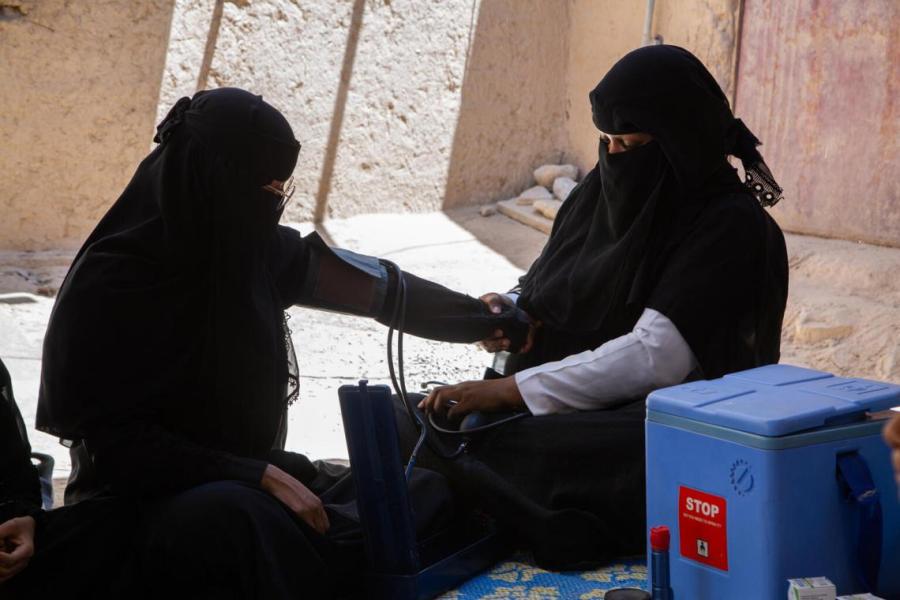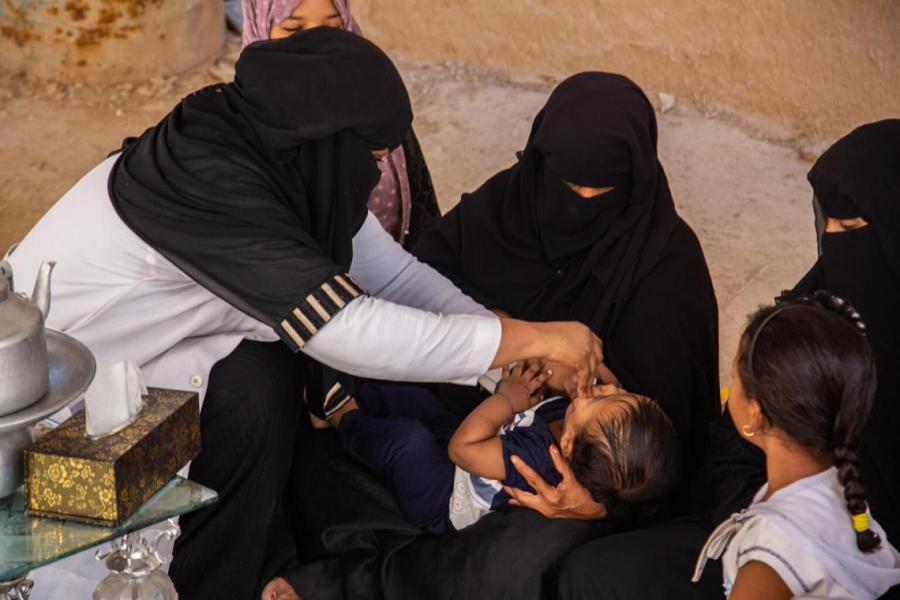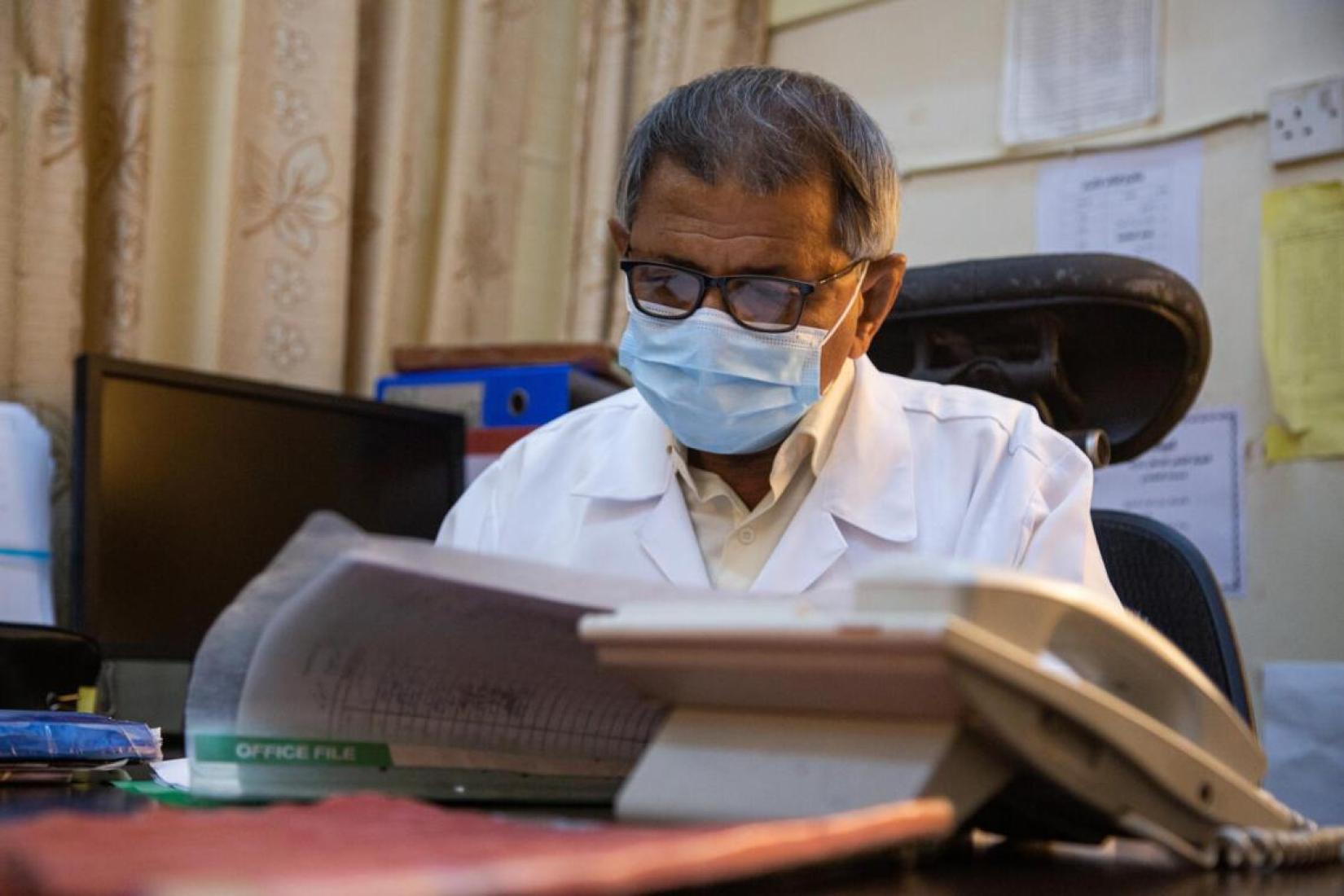Outside the Walls: Bringing Homecare to Yemenis in Need

Supporting 2000 health facilities and their outreach activities to provide essential support to thousands of children and families in different parts of Yemen
For years, Manal Bin Salman, 30-year-old housewife, had struggled to reach the Taribah Medical Centre, in Sayun Gov, Yemen to help her son get his routine vaccinations. Even the closest healthcare facility to their home in Taribah village in Sayun, the distance and the cost of transportation remained out of her reach, and, in turn, her son remained vulnerable.
UNICEF intervened – with funding from the World Bank through the Emergency Health and Nutrition Project (EHNP), to not only provide the Centre with medicines and vaccines, but to build the capacity of care teams to deliver essential services to vulnerable populations, including mobile health teams.
The EHNP supports service delivery at the primary care level. This includes services provided within primary healthcare facilities; routine community outreach conducted by facility-based health workers; mobile health teams; and community-based service providers, such as midwives, health volunteers, and health workers to around 2,000 health facilities in Yemen.
“We’ve benefited tremendously from this support. A health team came to our home to vaccinate my children and provide us with free medication. More than that, they gave us a sense of relief, knowing our children were protected. In the future, I hope they expand the program to include preventative treatments for heart disease, diabetes, and blood pressure,” Manal shared.
Two field visits each week (outreach activities) are conducted through a team named Outside the Walls to reach patients who cannot access the Taribah Medical Centre, whether due to their financial circumstances, the conflict, or their work commitments. They were given the name Outside the Walls because of their work nature where they leave their fixed sites inside health facilities and reach people who can’t access health facilities. Their services include monitoring pregnant women, identifying and responding to suspected cases of malnutrition, treating fevers and diarrhea, administering immunizations, and educating the public on the importance of hygiene, family planning, and diet and lifestyle.


For the past 12 years, Ahmed Al-Amri, 60, has served as the director of the Taribah Medical Center, where he oversees the provision of therapeutic and preventive services. Each day, the Center draws approximately 25 patients, who receive everything from routine treatments and exams, and vaccines and feeding supplements to emergency services. The Center also has a radiology department and a laboratory, as well as a chest clinic and a dental clinic.

Through UNICEF, Ahmed Al-Amri explained, the centre has received essential medical supplies, drugs, and furniture; has built its capacity to the point where it can send out a team of four people two times each week to reach vulnerable, marginalized, and underserved members of the community. The centre is also offering free pharmaceuticals to treat common conditions; provides the public with essential supplies to prevent an outbreak of COVID-19.
The new Emergency Human Capital Project (EHCP) funded by the World Bank will continue supporting the 2,000 health facilities in the country and their outreach activities to provide the essential support to thousands of children and families in different parts of Yemen.


